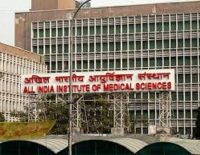World No Tobacco Day: Know what triggers children for consumption?

Tobacco kills nearly eight million people globally. It is known to increase the risk of heart diseases, stroke and lung cancer. It also triggers respiratory diseases such as Chronic Obstructive Pulmonary Disease (COPD). Other than that, it is also known to affect fertility.
Prof. Uma Kumar Head, Department of Rheumatology, AIIMS, says, “The use of tobacco not only affects physical health but also impacts mental well-being and economic stability. Children are being lured into tobacco consumption through various tactics, including-colorful packaging, selling it with candies and toffees, and attractive advertisements at their eye level”. She added that such strategies of tobacco makers target children’s curiosity which must be intervened.
In pregnant women, tobacco can lead to premature delivery, stillbirth and low-birth weight babies. In India, nearly 27 per cent of the adult population consumes tobacco — chewing and smoking.
The recently released health ministry report on tobacco control in India has a 2040 vision document to create a ‘Tobacco Free Future Generation’, where those born after 2022 would not be exposed to tobacco advertising or promotion, where all new tobacco products will be banned and there would be a move towards plain packaging.
The long-term effects of smoking collectively contribute to a significant decline in overall health, reducing life expectancy and diminishing quality of life.
Carcinogenic compounds in tobacco smoke damage the DNA in lung cells. Repeated exposure leads to mutations and uncontrolled cell growth. Lung cancer is often fatal, with symptoms including coughing, chest pain, and weight loss, significantly reducing quality of life and survival rates.
Smoke irritates the airways and destroys lung tissue, leading to chronic bronchitis and emphysema. Causes persistent cough, difficulty breathing, and frequent respiratory infections, severely limiting physical activity and quality of life.
Chemicals in tobacco smoke damage blood vessels, leading to atherosclerosis (hardening of the arteries), which reduces blood flow and oxygen supply to the heart. Increases risk of heart attacks, angina (chest pain), and heart failure, contributing to high mortality and morbidity rates.
Smoking increases blood pressure and makes the blood more likely to clot, which can block blood flow to the brain. Leads to brain damage, resulting in paralysis, speech difficulties, cognitive impairments, and in severe cases, death.
Smoking impairs the immune system and damages the airways, making it easier for infections to take hold. Increases susceptibility to pneumonia, bronchitis, and other respiratory infections, leading to frequent illness and weakened overall health.
Chemicals in tobacco affect hormone levels and reproductive organs in both men and women. This leads to difficulties in conceiving, increased risk of miscarriage, and complications in pregnancy.







